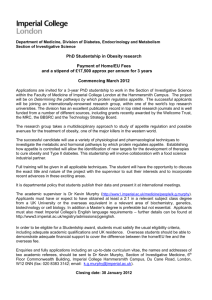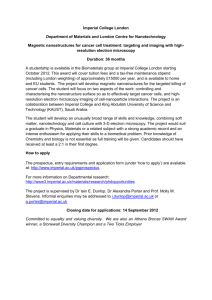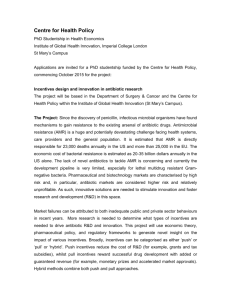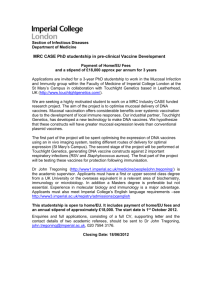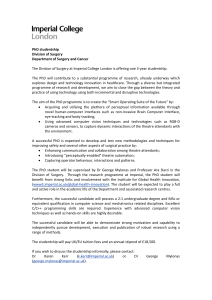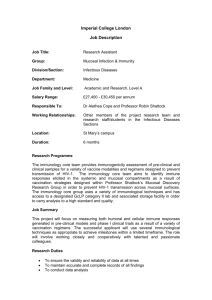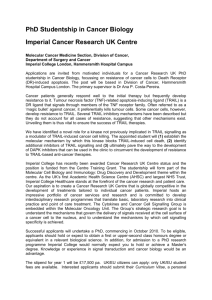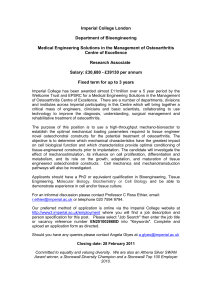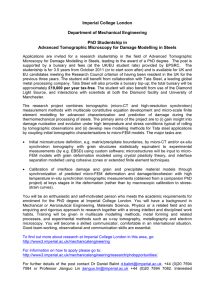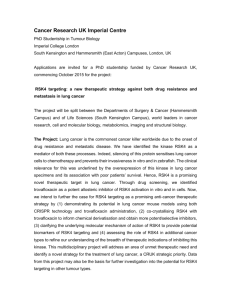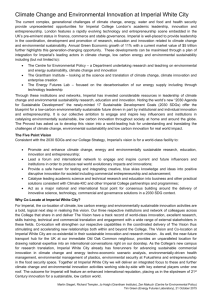PhD studentship in HIV Immunology Research
advertisement
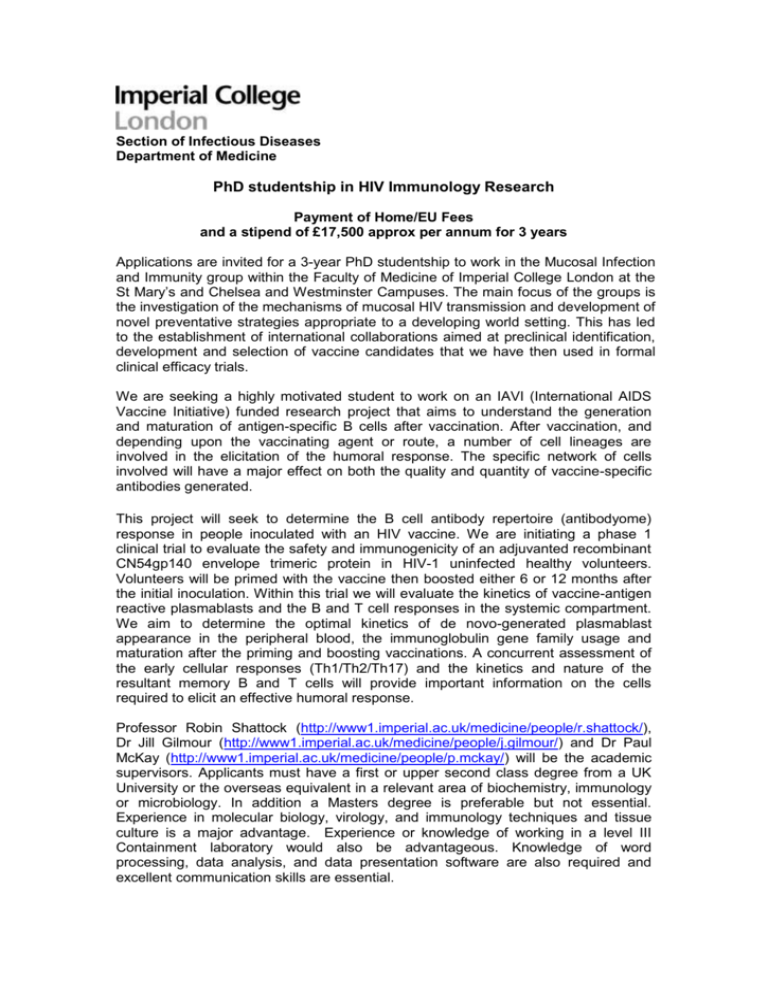
Section of Infectious Diseases Department of Medicine PhD studentship in HIV Immunology Research Payment of Home/EU Fees and a stipend of £17,500 approx per annum for 3 years Applications are invited for a 3-year PhD studentship to work in the Mucosal Infection and Immunity group within the Faculty of Medicine of Imperial College London at the St Mary’s and Chelsea and Westminster Campuses. The main focus of the groups is the investigation of the mechanisms of mucosal HIV transmission and development of novel preventative strategies appropriate to a developing world setting. This has led to the establishment of international collaborations aimed at preclinical identification, development and selection of vaccine candidates that we have then used in formal clinical efficacy trials. We are seeking a highly motivated student to work on an IAVI (International AIDS Vaccine Initiative) funded research project that aims to understand the generation and maturation of antigen-specific B cells after vaccination. After vaccination, and depending upon the vaccinating agent or route, a number of cell lineages are involved in the elicitation of the humoral response. The specific network of cells involved will have a major effect on both the quality and quantity of vaccine-specific antibodies generated. This project will seek to determine the B cell antibody repertoire (antibodyome) response in people inoculated with an HIV vaccine. We are initiating a phase 1 clinical trial to evaluate the safety and immunogenicity of an adjuvanted recombinant CN54gp140 envelope trimeric protein in HIV-1 uninfected healthy volunteers. Volunteers will be primed with the vaccine then boosted either 6 or 12 months after the initial inoculation. Within this trial we will evaluate the kinetics of vaccine-antigen reactive plasmablasts and the B and T cell responses in the systemic compartment. We aim to determine the optimal kinetics of de novo-generated plasmablast appearance in the peripheral blood, the immunoglobulin gene family usage and maturation after the priming and boosting vaccinations. A concurrent assessment of the early cellular responses (Th1/Th2/Th17) and the kinetics and nature of the resultant memory B and T cells will provide important information on the cells required to elicit an effective humoral response. Professor Robin Shattock (http://www1.imperial.ac.uk/medicine/people/r.shattock/), Dr Jill Gilmour (http://www1.imperial.ac.uk/medicine/people/j.gilmour/) and Dr Paul McKay (http://www1.imperial.ac.uk/medicine/people/p.mckay/) will be the academic supervisors. Applicants must have a first or upper second class degree from a UK University or the overseas equivalent in a relevant area of biochemistry, immunology or microbiology. In addition a Masters degree is preferable but not essential. Experience in molecular biology, virology, and immunology techniques and tissue culture is a major advantage. Experience or knowledge of working in a level III Containment laboratory would also be advantageous. Knowledge of word processing, data analysis, and data presentation software are also required and excellent communication skills are essential. Applicants must also meet Imperial College’s English language requirements – see http://www3.imperial.ac.uk/registry/admissions/pgenglish This studentship is open to both home/EU and overseas students. It includes payment of home/EU fees and an annual stipend of approximately £17,500. Overseas students should be able to demonstrate adequate financial support to cover the difference between the home/EU fee and the overseas fee. The start date is 1st May 2013. Enquiries and full applications, consisting of a full CV, supporting letter and the contact details of two academic referees, should be sent to Sarah Harman, sarah.harman@imperial.ac.uk. Closing Date: 28/02/2013
